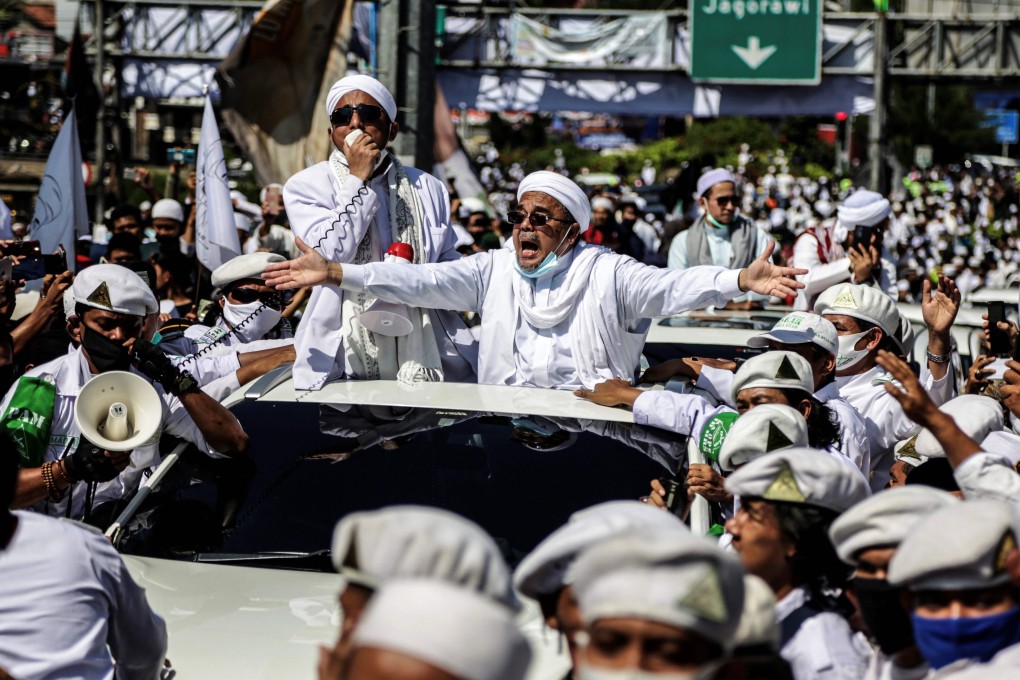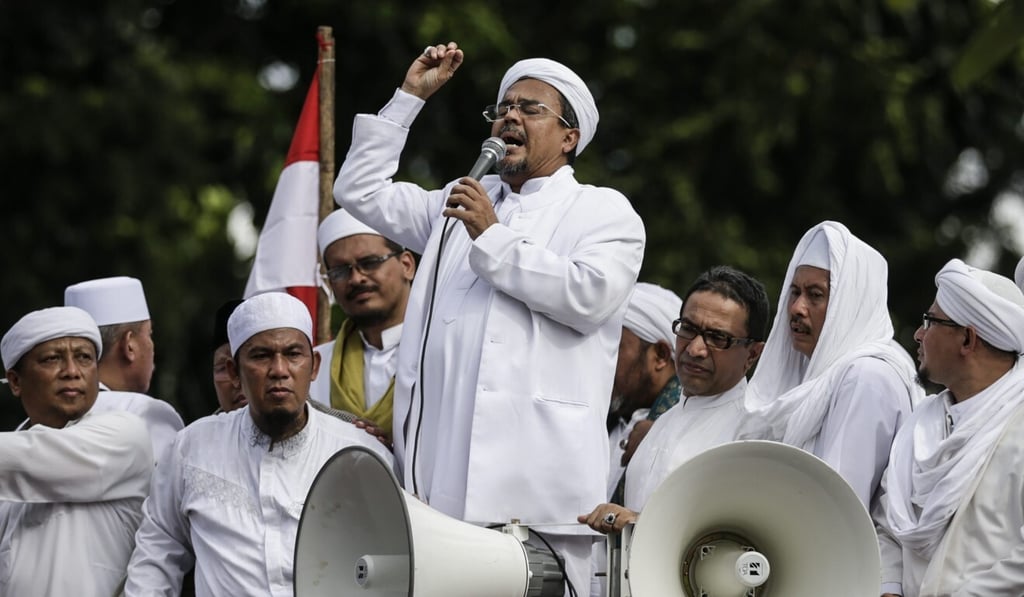Indonesia jails hardline Muslim cleric Habib Rizieq Shihab for Covid-19 violations
- Jail term relates to mass events held by the firebrand, including his daughter’s wedding; analysts say his supporters’ anger will be muted
- The move follows a report warning ‘more militant members’ of the cleric’s Islamic Defenders Front could be pushed by sense of ‘persecution’ to more violence

The jailing of Rizieq, who led the now banned Islamist vigilante group, the Islamic Defenders Front (FPI), was not expected to trigger a violent reaction from his hundreds of thousands of followers “as he will be freed in about two months’ time”, said Robi Sugara, a lecturer and counterterrorism analyst at Syarif Hidayatullah Islamic University in Jakarta.
Rizieq was arrested in December and the time spent in detention will be deducted from his jail sentence.
“It is difficult to carry out a violent reaction [when the] Indonesian government [is so] very powerful,” said Sugara, though he added that FPI members would remain “militant”.

While Rizieq’s supporters would be “angry” that their “role model” would have a criminal record, the light sentence and fine – similar to the one he received last year from Jakarta authorities for the massive crowd that gathered at his daughter’s wedding – meant the “anger will not be too big”, said Iwa Maulana, a researcher at the Centre for Detention Studies in Jakarta.
Maulana said FPI members and Islamist groups would give their moral support to Rizieq but were likely to avoid debates deemed as “dangerous” as they would expect police “to monitor them closely”.